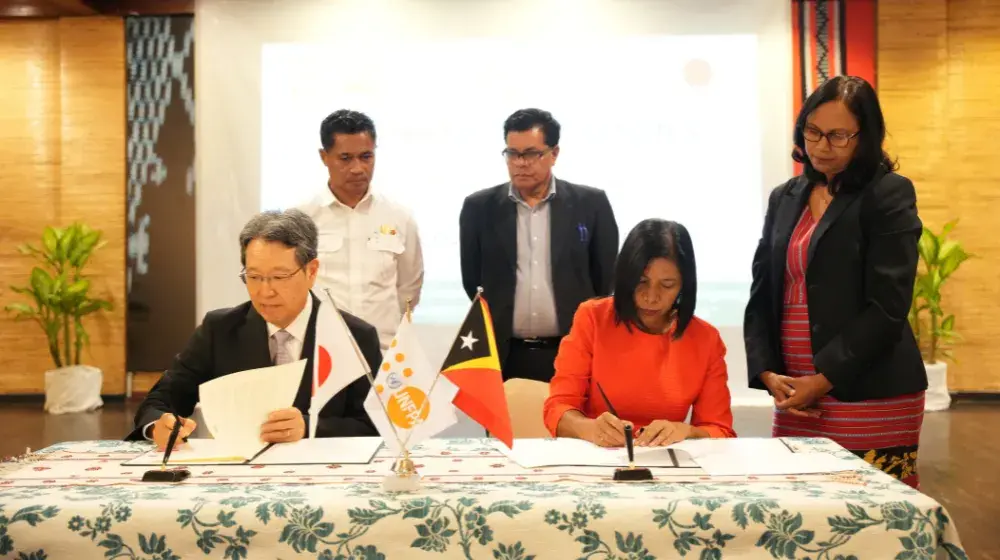United Nations, New York, 23 May 2016
Significant gains have been made in improving sexual and reproductive health and advancing reproductive rights since the 1994 Cairo International Conference on Population and Development. But many people, especially the poor and vulnerable, still lack access to quality sexual and reproductive health services, including life-saving emergency obstetric care. Women and girls living with fistula are among the most marginalized and neglected, and the persistence of fistula is a grave illustration of serious inequalities and the denial of rights and dignity.
The theme of this year’s International Day to End Obstetric Fistula, “End fistula, restore women's dignity”, is both timely and crucial. As the Millennium Development Goals draw to a close and the world shapes a new development agenda, we have a golden opportunity to put the rights and dignity of women and girls – including the invisible, disenfranchised, and voiceless – at the heart of a people-centred, equity-driven, rights-based agenda. Only then can we transform the vision of ending preventable maternal and newborn death and injuries into reality, and truly bring about the world we want.
The global Campaign to End Fistula, launched in 2003 by UNFPA, the United Nations Population Fund, and partners, has catalysed progress towards eliminating fistula and supporting fistula survivors through its three-pronged strategy of prevention, treatment and social reintegration. UNFPA has supported over 57,000 fistula repair surgeries for women and girls in need, and Campaign partners have enabled many more to receive treatment.
More and more women also receive rehabilitation. Women like Nasima Nizamuddin from southern Bangladesh, whose husband rejected her and their nine month-old son, Nayem, when she developed fistula during his birth. After a successful surgery, Ms. Nizamuddin came to the UNFPA-supported Fistula Patients Training and Rehabilitation Centre in Dhaka for her emotional recovery and to acquire skills to make a living for her and her son, and to live a life in dignity.
However, much more needs to be done. We estimate that at least 2 million women live with the condition and 50,000 to 100,000 new cases occur every year. Fortunately, with the right combination of political will and leadership, financial commitment and scaling up of evidence-based, cost-effective, quality interventions, ending forced marriage and ensuring girls education as well as voluntary family planning, we can end the needless suffering of millions of women and girls. We can also ensure that others do not suffer the same fate.***
Deklarasaun ba Loron Internasional Hakotu Fistula Obstetrika husi
Dr. Babatunde Osotimehin, Sub-Secretário-Geral Nações Unidas no Diretor Exekutivu, Fundu Nasoins Unidas ba Populasaun
Nasoens Unidas, Nova Yorke, 23 Maiu 2016
Atininjimentu signifikante lubuk ida maka halo tiha ona hodi hadia saude seksual no reproduktiva no hadia direitu reproduktiva dezde 1994 iha Konferensia Internasional kona-ba Populasaun iha Cairo, Egipto . Maibe ema barak, liu-liu hirak ne'ebe kiak no vulnerabel, sei menus asesu ba kualidade servisu saude seksual no reproduktiva, inklui kuidadus ba emerjensia obstetria. Feto no labarik feto sira ne'ebe maka ho fistula maka hirak ne'ebe marjilinadu no haluha tiha, no fistula ne'ebe maka persisnte hanesan ilustrasaun husi dizigualidade ne'ebe maka seriu tebes no haluha tiha direitus sira no dignidade.
Tema ba Loron Internasional atu hapara Fistula maka " Hapara fistula no restora fali feto sira nia dignidade", maka iha tempu ne'ebe importante no krusial tebes. Tuir metas Dezenvolvimentu Milenium bazea ba buat ida ne'ebe besik no mundu ida ne'ebe presiza realiza agenda foun dezenovlimentu, ita iha oportunidade osan mean atu tau fali direitus no dignidade feto no labarik feto sira nian - inklui agenda ba hirak ne'ebe ita la hare hetan, /desprivilegiados , laiha lian, igualidade, no bazea ba direitu . Ho hirak nee deit maka ita bele tranforma vizaun atu hapara mate ba inan no bebe ne'ebe maka bele prevene iha realidade, no nunee bele lori mundu ida nee tuir buat ne'ebe maka ita hakarak.
Objektivu husi Kampanya Global atu Hapara Fistula, lansa iha 2003 husi UNFPA, Fundus Nasoens Unidas ba Populasaun, no parseirus sira, kataliza tiha ona progresu hirak nebe hodi halakon fistula no suporta vitima fistula sira liu husi estratejia tolu: prevensaun, tratamentu no reintegrasaun sosial. UNFPA suporta tiha ona mos operasaun hamutuk 57,000 liu ba feto no labarik sira ne'ebe presiza, no parseirus ba kampanya sira ajuda mos ema barak atu hetan tratamentu.
Feto barak no barak liu tan hetan mos rehabilitasaun. Feto hanesan Nasima Nizamuddin husi parte Sul Bangladesh , ne'ebe nia laen la simu nian no nia oan mane fulan sia, bainhira nia hetan kazu fistula durante partus. Liu husi operasaun ne'ebe susesu, Sra. Nizamuddin mai vizita UNFPA nia fatin ne'ebe suporta Treinamentu no Rehabiliasaun ba pasiente fistula sira iha Dhaka atu hetan rekuperasaun emosional no hetan mos abilidade hodi bele moris ba nia-aan rasik no nia oan, no moris mos iha dignidade.
Maibe, buat barak maka presija halo tan. Ami kalkula maizumenus feto milhaun 2 ho kondisaun no kazu foun hamutuk 50,000 to'o 100,000 mosu kada tinan. Sorte ho kombinasaun politika no lideransa ne'ebe maka loos, komitmentu finanseiru no habelar liu tan bazeia ba evidensia, kustu efeitivu, kualidade intervensaun, hapara kaben obrigatoriu no garantia edukasaun ba labarik feto sira no mos planeamentu familiar ho voluntariu, ita bele hapara sofrementu husi feto no labarik feto sira milhaun ba milhaun. Ita mos bele garantia katak sira seluk sei la sofre ho buat ne'ebe hanesan.
Mai ita hotu deside, hanesan komunidade global, katak mundu ida ne'ebe maka ita hakarak ne'e laiha tan fistula. Mai ita hotu, dala ida tan no ba ita hotu, tau esforsu atu hapara asaltu hasoru feto sira no saude direitus humanus feto no labarik feto sira nian, ne'ebe maka hasai tiha ona sira nia dignidade no halo aat sira nia kualidade fundamentu humana nian: esperansa. Nasaun barak maka hapara tiha ona fistula. Agora dadaun tempu atu remata servisu ida nee. Mai ita hotu servisu hamutuk atu hapara tiha fistula iha mundu ida nee.***



